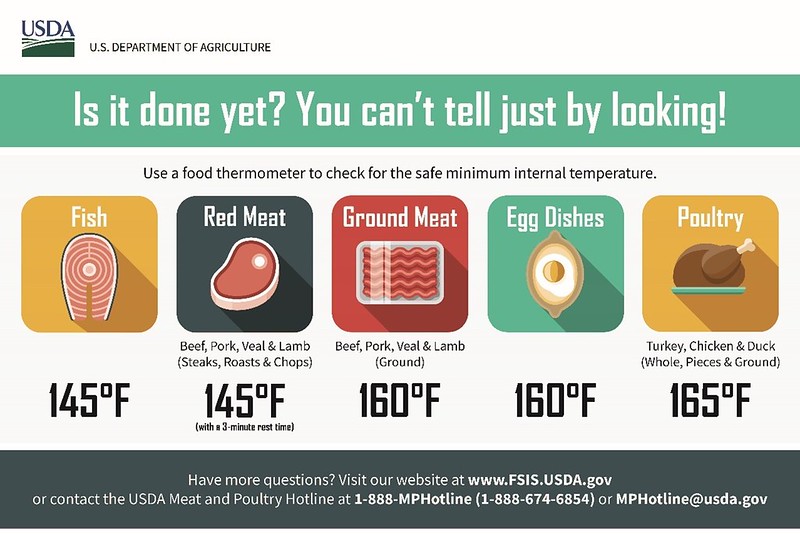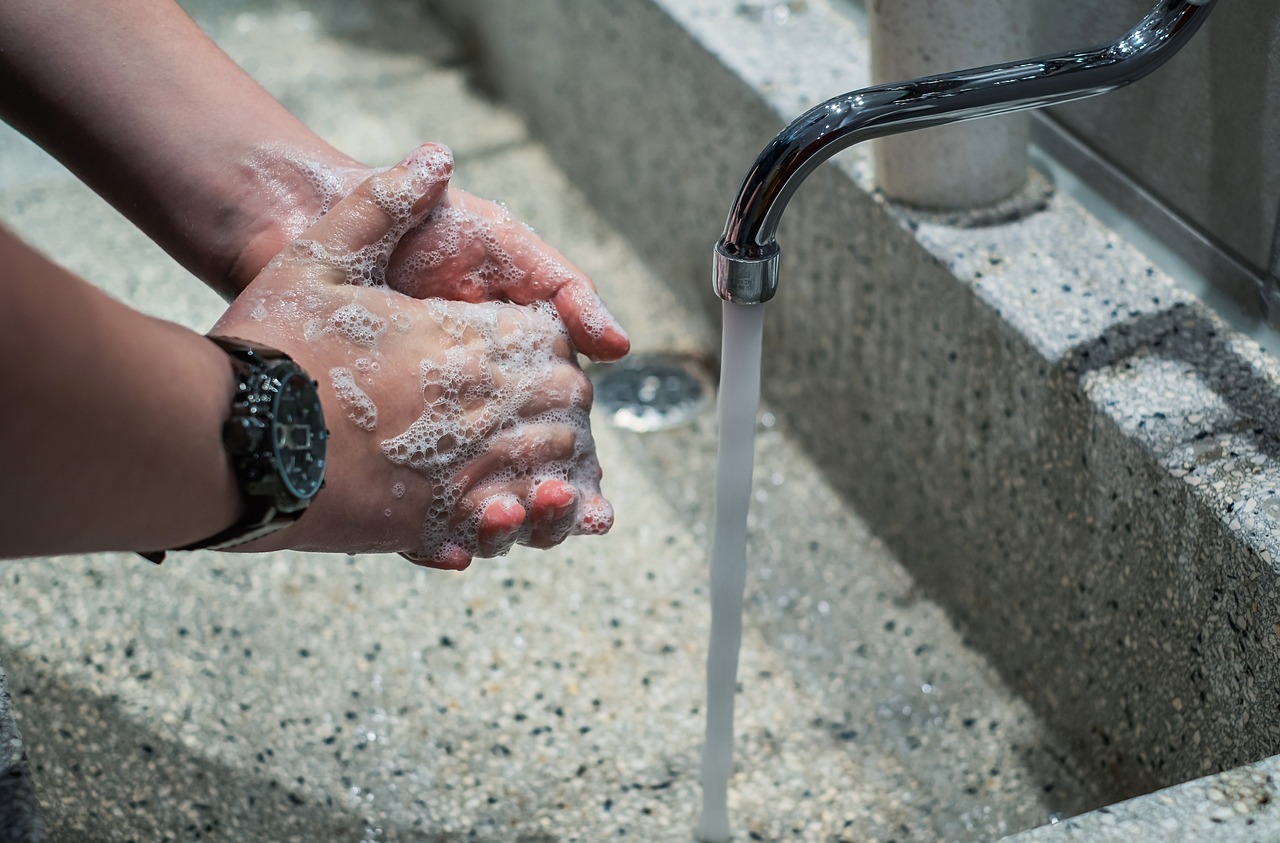When you are preparing food, it is important to take steps to prevent foodborne illness and the spread of bacteria. Follow these core 3 Fight BAC!® practices for food safety:
1. Clean
Wash hands and surfaces often.
Bacteria can be spread throughout the kitchen and get onto hands, cutting boards, utensils, counter tops and food. To Fight BAC!® always use food safety practices:
• Wash your hands with warm water and soap for at least 20 seconds before and after handling food and after using the bathroom, changing diapers and handling pets.
• Wash your cutting boards, dishes, utensils, and counter tops with hot soapy water after preparing each food item and before you go on to the next food.
• Consider using paper towels to clean up kitchen surfaces. If you use cloth towels wash them often in the hot cycle of your washing machine.
• Rinse fresh fruits and vegetables under running tap water, including those with skins and rinds that are not eaten.
• Rub firm-skinned fruits and vegetables under running tap water or scrub with a clean vegetable brush while rinsing with running tap water.
2. Separate
Don’t cross-contaminate.
Cross-contamination is how bacteria can be spread. Improper handling of raw meat, poultry, seafood and eggs can create an inviting environment for cross-contamination. As a result harmful bacteria can spread to food and throughout the kitchen leading to a foodborne illness.
• Separate raw meat, poultry, seafood and eggs from other foods in your grocery shopping cart, grocery bags and in your refrigerator.
• Use one cutting board for fresh produce and a separate one for raw meat, poultry and seafood.
• Never place cooked food on a plate that previously held raw meat, poultry, seafood or eggs.
3. Cook
There is only one way to know your food has reached a safe temperature – by using a food thermometer. Measuring the temperature of your meat with a thermometer helps you avoid overcooking your meat as well as undercooking it.

—

Did you know October 15th is Global Handwashing Day? Global Handwashing Day aims to promote frequent, proper handwashing hygiene.
Why should I wash my hands?
Proper hand washing is not only practicing good hygiene, but it also can help prevent the spread of communicable diseases and sicknesses.
When should I wash my hands?
Handwashing should be performed whenever you cough, sneeze, blow your nose, after using the restroom, before eating or preparing food, after touching visibly dirty surfaces or commonly touched surfaces, and regularly throughout the day.
How should I wash my hands?
Proper hand washing begins with wetting hands under running water. Then, use soap to lather the palms, backs of hands, between fingers, fingertips, and under the fingernails. Next, scrub for at least 20 seconds under running water. A helpful trick is to sing a song while doing this. After this, rinse the soap off. Lastly, dry hands and use a towel to turn off the water or touch surfaces such as a door handle.
Proper and frequent handwashing is essential for maintaining a healthy, safe environment for you and those in your community! Happy Global Handwashing Day!
Additional Resources:
USDA’s Safe Food Handling and Preparation
CDC’s When and How to Wash Your Hands
CDC’s Global Handwashing Day

